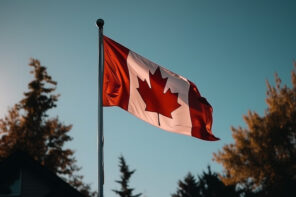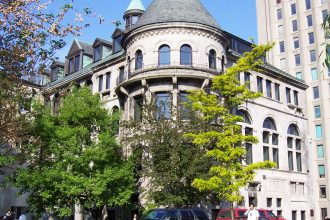On October 1, 2021, after a year of delays caused by the COVID-19 pandemic, Expo 2020 opened its doors to the public. With 192 country pavilions spread out over an area larger than Monaco, Expo 2020 is a testament to the United Arab Emirates’ success in recent decades. The city of Dubai in particular is seen on the international stage as a bustling and business-friendly metropolis. However, in recent years, under renewed leadership, Saudi Arabia has doubled down on its efforts to compete with Dubai and cement itself as the regional business leader.
Saudi Arabia has doubled down on its efforts to compete with Dubai and cement itself as the regional business leader.
After rising to the throne in 2015, King Salman put his son Mohammed bin Salman (MBS) in charge of the Saudi economy, religion, defense, and oil. MBS then outlined his plan for Saudi Arabia called Vision 2030. The plan’s central objective was to diversify the Kingdom’s oil-dependent economy by promoting investment and increasing employment. The oil and gas sector represents half of the country’s Gross Domestic Product and nearly 90 percent of export income. Saudi Arabia also has one of the world’s youngest populations, with more than half of its citizens below the age of 25. Despite this, the country has struggled to combat high unemployment, which sits at over eleven percent.
With less than 1,000 kilometers separating the two cities, Dubai and Riyadh – Saudi Arabia’s capital – could not be more different. Oil production accounts for less than one percent of Dubai’s economy. Instead, the city depends on travel and tourism, real estate, and transport. The city’s population is largely composed of expatriates — around 90 percent — compared to Riyadh’s 35 percent. The UAE’s employment figures and GDP per capita are also higher than its western neighbor. Dubai International Airport is one of the world’s most important hubs, handling tens of millions of passengers yearly. However, it’s the ease of doing business in the UAE that makes it stand out in the Middle East. Its leaders have consistently implemented favorable policies to promote trade. Free zones — one of Dubai’s most noticeable innovations — are economic zones where goods and services can be traded at near-zero tax and customs rates. Free zones allow complete foreign ownership, historically a rare find in the Gulf Cooperation Council.
The UAE and Saudi Arabia have historically shared a close friendship, but a rivalry between them is heating up as Saudi Arabia quests for regional business leadership; MBS has undertaken several measures to attract business away from Dubai and towards Riyadh. As part of the Vision 2030 program, the Kingdom has set a target of 480 firms with yearly revenues above $1-billion to set up their regional headquarters in the country by 2030. To reach this objective, the crown prince declared that by 2024, Saudi Arabia will no longer sign contracts with foreign companies if their regional headquarters are located elsewhere in the Middle East. This move, combined with other incentives including tax breaks, led to a wave of corporations applying for licenses to relocate their regional headquarters. These include the likes of KPMG, Deloitte, PepsiCo, and Unilever. In a bid to transform Riyadh into an international business hub, there are plans to transform King Abdullah Financial District into an economic zone similar to Dubai’s free zones, where companies can benefit from full corporate ownership and advantageous tax treatment. MBS has also placed tremendous importance on tourism. While Dubai consistently tops worldwide rankings for top tourism destinations, Saudi Arabia is not backing down. In 2017, MBS introduced the NEOM project, an AI-powered smart city to be built along the country’s Red Sea coastline for an estimated cost of $500-billion.
Saudi Arabia also intends to challenge the UAE’s dominance through social and legal reforms. Under MBS’s leadership, the deeply conservative nation has made great strides, especially for women’s rights. Though there is still a long way to go before life in Saudi Arabia resembles the liberal lifestyle Dubai is known for, the modernization of Saudi society seems to be a key aspect in attracting foreign business.
The UAE, however, is not watching in silence. Last December, the country announced that effective 2022, the weekend would change to Saturday and Sunday, instead of Friday and Saturday — amove Saudi Arabia cannot conceivably replicate since Fridays are reserved for prayers. This move from the UAE would allow multinational companies that conduct business in the country to better align their operations with the rest of the world. In 2019, the UAE also implemented a Golden Visa, a new system for long-term residence visas which would be awarded to selected entrepreneurs, students, and investors as an incentive to stay in the country.
If both countries continue liberalizing their societies and implementing policies favoring trade and investment, the entire region can benefit.
Saudi Arabia’s modernization may seem like a threat to the UAE’s ability to attract and retain foreign business. However, competition is not always a zero-sum game. If both countries continue liberalizing their societies and implementing policies favoring trade and investment, the entire region can benefit. With two international business hubs so close to each other, the Middle East may soon become one of the world’s most attractive regions worldwide to invest in.








